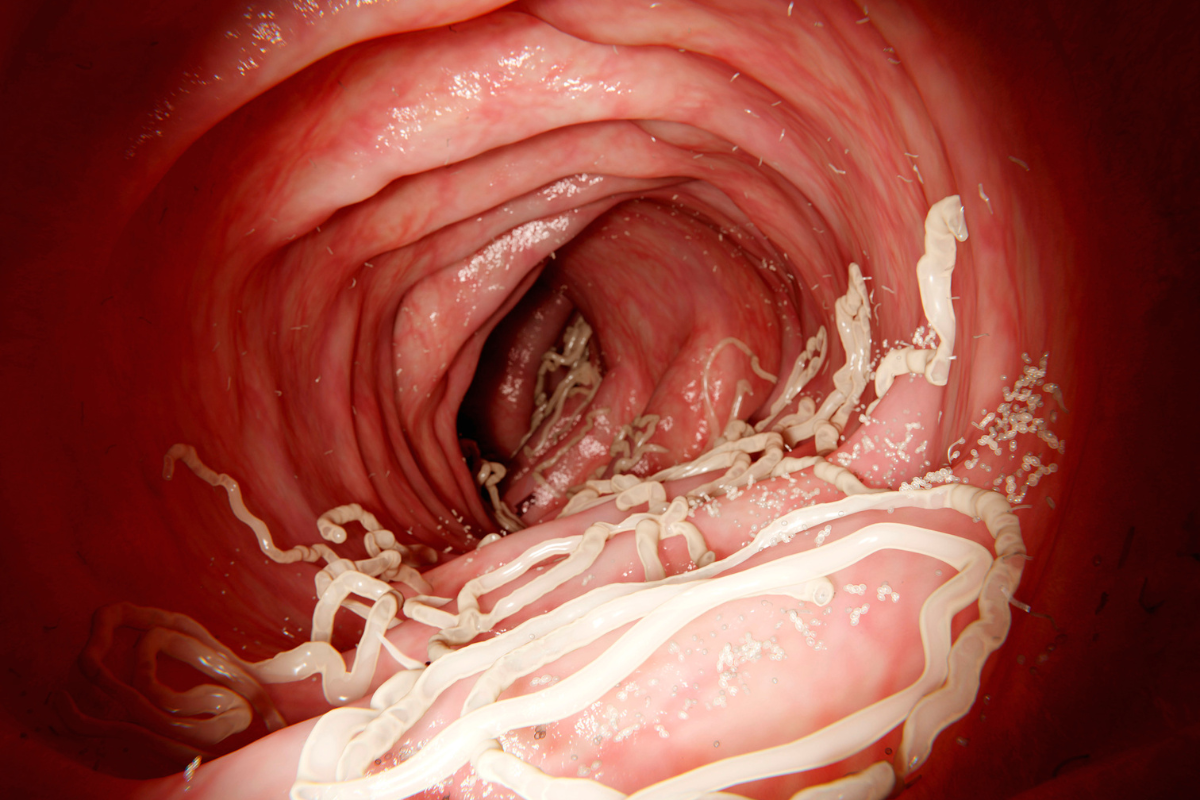
Ascariasis is caused by a roundworm infection of the intestines and is one of the most common worm infections in people worldwide. These large worms can cause digestive issues, brain fog and fatigue. But heavy infestations can lead to more serious symptoms and complications. Our students recovering from MS and other diseases often pass very large roundworms, sometimes about 2 feet long and experience significant improvements in brain function, strength in arms and legs, better sleep, more energy and much more. This post discusses the signs and symptoms of roundworm infections, how they are treated and pictures of roundworms that our students have passed.
Are parasitic worms good for MS?
A 2020 study looked at the impact of infecting MS patients with hookworms. They concluded that infecting MS patients with hookworms was relatively safe and could potentially offer an immune modulatory effect, although their findings were not significant. The sample size of subjects tested in this trail was very small and the subjects were assessed for only 36 weeks. These researchers found that the total number of new MRI lesions did not differ significantly between patients receiving hookworms and those receiving the placebo. Their inconclusive findings were consistent with the results of other studies investigating helminth treatment for MS.[i]
Hookworm infections can cause anaemia, an itchy rash, a cough, wheezing, trouble breathing, abdominal pain, weight loss, diarrhea and loss of appetite. In children they can cause retarded growth and impair mental development. Just because a parasitic worm could potentially alter or suppress immune function, does not mean that it’s a healthy practice to introduce it into the body.
Nematode worms
Nematodes or roundworms are one of the most abundant animals on earth. They can be parasitic to plants or animals and can range in size from microscopic to 23 feet long. They can infect all organs of the body but are more commonly found in the intestines, and circulatory and respiratory systems.
Common roundworms include hookworms, lungworms, pinworms, threadworms, whipworms, and filarial and Ascaris roundworms. They are parasites that live in our body and cause us harm.
Ascaris roundworms
Ascaris is a very large roundworm that causes ascariasis. The adult ascaris worm lives in the human small intestine, can grow to 1 foot or longer and can become as thick as a pencil. Up to 100 worms can infect a person at one time and each female worm can lay 200,000 eggs in a day. It takes about 2 to 3 months for an ingested egg to develop into an adult worm and adult worms can live 1 – 2 years.
Most people dealing with a mild case of ascariasis have minimal symptoms, but moderate to heavy infestations can cause a variety of significant symptoms.
Ascaris larvae in the lungs
Ascaris nematodes the lungs can cause asthma or pneumonia like symptoms including:
- a persistent cough
- shortness of breath
- wheezing
- hemoptysis – coughing up a small amount of blood
After about 10 – 14 days in the lungs, ascaris larvae travel to the throat, where they are coughed up and then swallowed.
Ascaris nematodes in the intestines
The ascaris larvae develop into adult worms in the small intestine and live in the intestines until they die. They can cause the following symptoms:
- vague or severe abdominal pain and distention
- intestinal obstruction
- constipation
- diarrhea or bloody stools
- vomiting
- fatigue
- brain fog
- headaches
- jaundice
- weakness
- muscle cramps
- weight loss or malnutrition
- vitamin B 12 deficiency
- a visible worm in vomit or stool
How to become infected with ascaris roundworms
Humans become infected with fertilized ascaris eggs through contaminated soil through hand-to-mouth contact and by eating uncooked fruits or vegetables that have been grown in contaminated soil.
Diagnosis of ascariasis
Stool tests are inaccurate yet attempt to identify adult worms or eggs. Some people have reported adult worms leaving their nose or mouth and occasionally larvae have been found in sputum. Adult worms may also be seen on CT scan or ultrasound images.
Eosinophils are white blood cells that fight parasitic worms. Their presence may be elevated on a blood test (eosinophilia) when the ascaris larvae move through the lungs, but usually their present subsides when adult worms live in the small intestine.
How Ascaris are treated
It is important to treat ascaris infections and they are best treated with a combination of parasite medications, oxidizing enemas and antimicrobial herbs.
Mebendazole, albendazole and ivermectin are commonly prescribed to treat Ascariasis. Nitazoxanide may be helpful for mild Ascaris infections but alone is not effective for heavy infestations.
Oxidizing enemas are extremely helpful in the treatment of an ascaris infestation. CLICK here to learn more about treating parasites with enemas.
In severe cases, intestinal obstructive may require surgical removal of the adult worms.
Ascaris larvae in the lungs may require the use of bronchodilators and corticosteroids.
Iron and or B12 vitamin supplements may be recommended for deficiencies.
Pain relievers, anti-inflammatories antihistamines may provide relief of symptoms.
Pictures of large roundworms passed from people diagnosed with MS
The following pictures are for educational purposes only and are not intended to replace the necessary measures of a healthcare professional. The images are from student following the Live Disease Free plan and treating parasites with parasite drugs, antimicrobial herbs and using oxidizing enemas.
Our students frequently pass very large roundworms and they experience remarkable and immediate symptom improvements when these worms are passed.
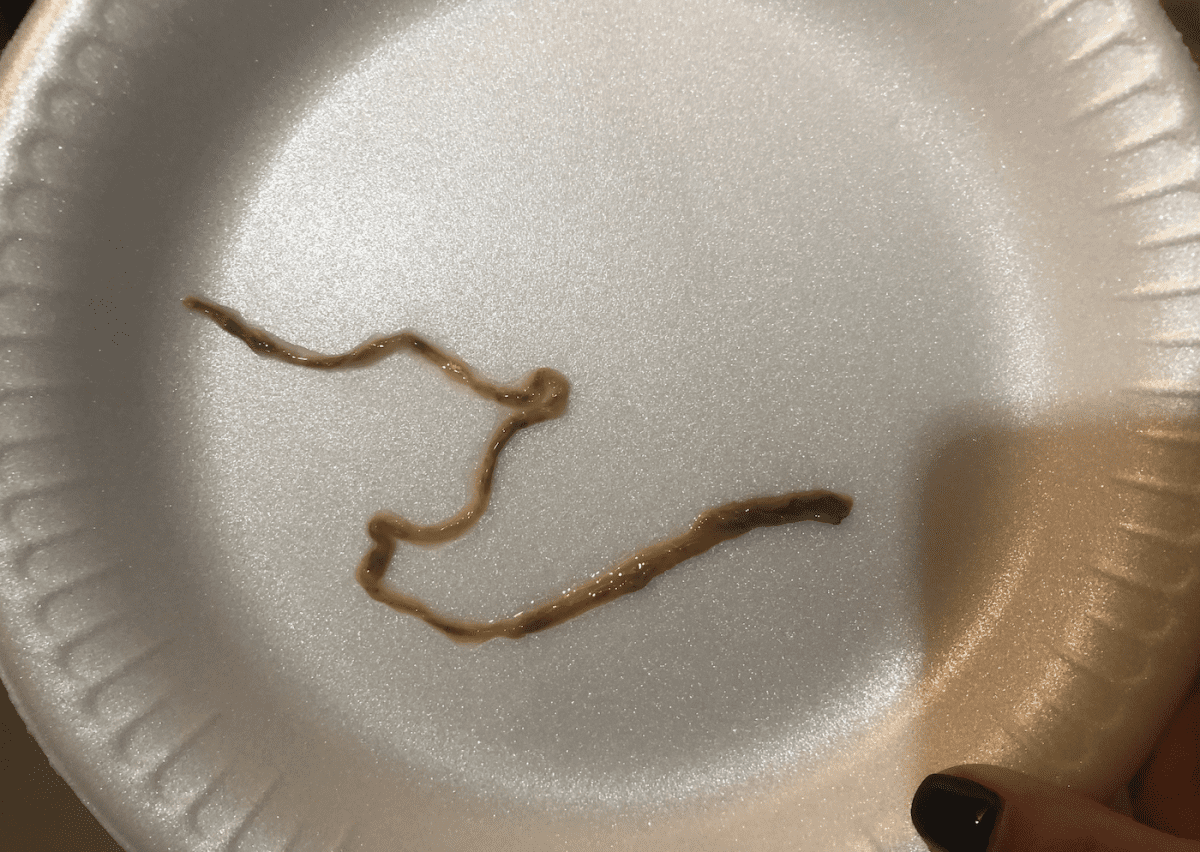

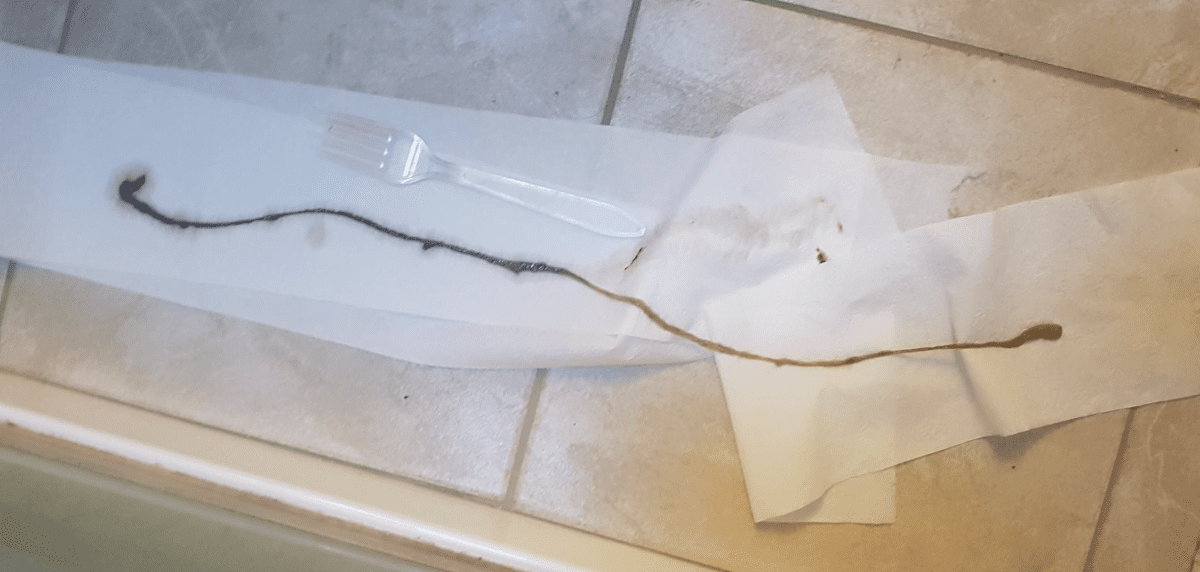



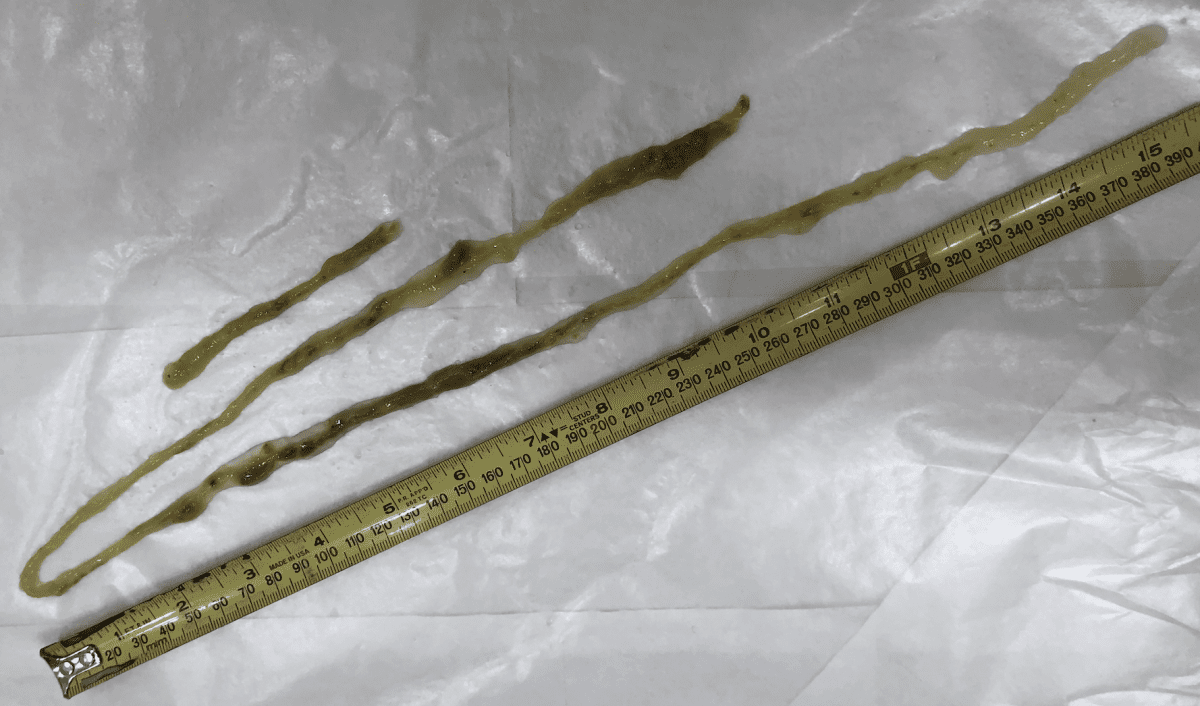

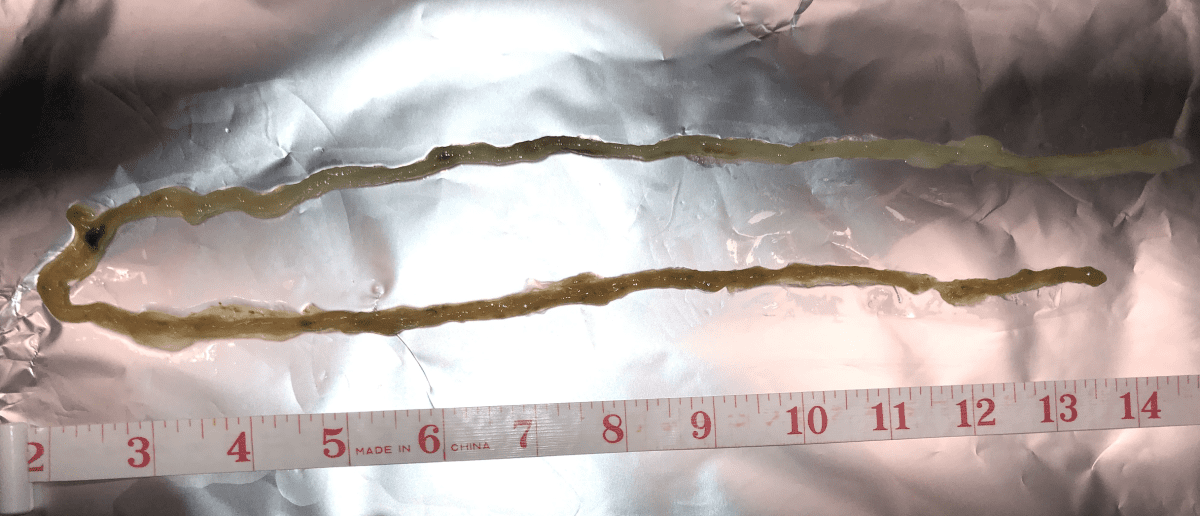
These are just a few of the hundreds of images that our students have shared with us. It has been our experience that people diagnosed with chronic disease often have very large parasitic roundworms and as these and other parasites are treated effectively, they are able to recover from all types of autoimmune and chronic disease.
There are real solutions to recover from parasites today!
To restore health, we must focus on treating the cause of inflammation, which are parasites. First, identify the enemy (parasites), then support the body and treat the parasites while following a holistic approach. When parasitic infections are treated effectively, we can overcome inflammation or disease.
If you’re frustrated with the fact that our standard of care STILL doesn’t offer a real solution for treating MS and other diseases, then click on the link below to watch Pam Bartha’s free masterclass training and discover REAL solutions that have allowed Pam and many others to live free from MS and other diseases.
CLICK Here to watch Pam’s masterclass training
Or take the Health Blocker Quiz to see if you could have parasite infections
References:
[i] https://pubmed.ncbi.nlm.nih.gov/29064315/
https://www.britannica.com/animal/nematode
https://www.cdc.gov/dpdx/ascariasis/index.html
https://www.jstor.org/stable/3275981

Clinically diagnosed with multiple sclerosis at the age of 28, Pam chose an alternative approach to recovery. Now decades later and still symptom free, she coaches others on how to treat the root cause of chronic disease, using a holistic approach. She can teach you how, too.
Pam is the author of Become a Wellness Champion and founder of Live Disease Free. She is a wellness expert, coach and speaker.
The Live Disease Free Academy has helped hundreds of Wellness Champions in over 15 countries take charge of their health and experience profound improvements in their life.

